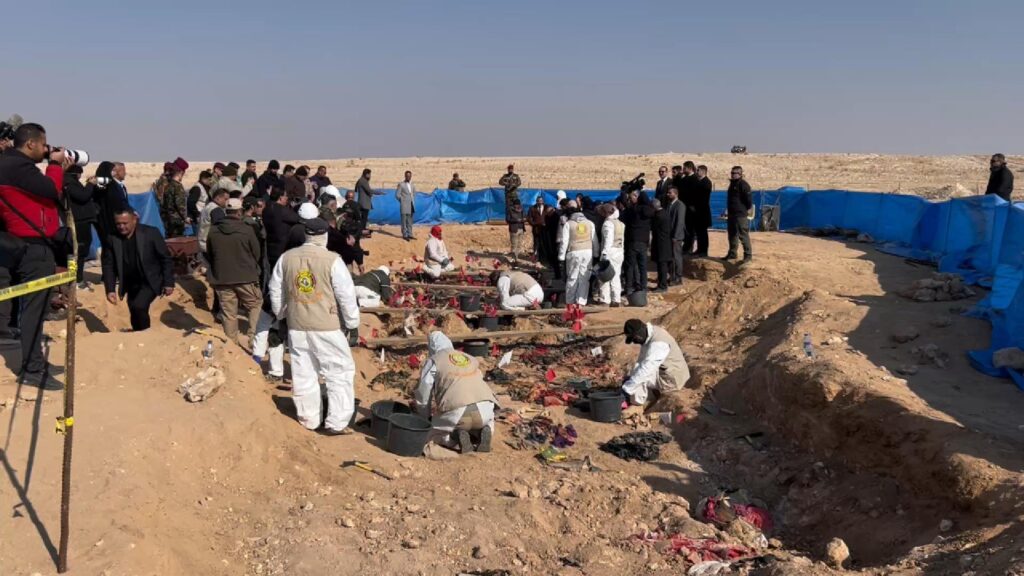Kurds must focus on converting military victory into political gains

This was the moment the survivors of ISIS's reign of terror had been patiently waiting for since a US-led international coalition began a campaign of air strikes in 2014 against the terror group led by Abu Bakr al-Baghdadi. This is also an extended moment for humanity to think of what might have been but for the selfless courage and sacrifices of the male and female units of the multi-ethnic SDF.
Whether or not any reward other than victory ultimately comes their way, the Kurdish, Sunni Arab and Syriac Christian soldiers of the SDF should waste no time in consolidating their political position so that they do not have to confront another existential threat from their enemies in their lifetime.
When nativist, far-right political parties and authoritarian, intolerant governments are challenging worldwide the merits of a secular, liberal and open society, there could not be a more timely inspiration for our common humanity than the Kurds of Syria and Iraq. Their successful prosecution of the war, which ended with a prolonged campaign to clear the last patch of territory held by ISIS in the village of Baghouz, involved no major cases of summary justice, human-rights violation or collective punishment despite the enemy's barbaric brand of nihilism.
For a region associated in recent years with mass crimes, acts of ethnic cleansing, persecution of political opponents and exploitation of religion, the Middle East may seem like an odd place for a global liberal counteroffensive to emerge from. But then, the Kurds have always been one of a kind, a heterogeneous ethnic group that holds no grudges against the West despite being repeatedly treated as disposable allies, yet is always in the vanguard of the fight for social harmony, gender equality, religious moderation and cultural pride.
That being said, it is too early to announce the end of ISIS on the basis of the collapse of al-Baghdadi's caliphate. For one thing, the world has to find an immediate answer to the question of what to do with the thousands of men, women and children who surrendered or escaped from the last strongholds of ISIS and are currently being held in camps run by the SDF. This was no ordinary conflict, after all, that ends with mostly male soldiers of a defeated army being brought to account for their wartime conduct and jailed or released accordingly.
For another thing, the SDF's allies and partners must understand that ISIS as a phenomenon requires a holistic solution, of which military bombardment and cyber policing form only a part, albeit a vital one. While the significance of the loss of the caliphate’s symbolic land mass is indisputable, the persistence of the tensions and conditions that catalysed the transformation of al-Qaeda in Iraq into ISIS on either side of the Iraq-Syria border is undeniable.
If anything, the rubble of war is just the kind of space in which feelings of alienation and extremist ideas are likely to grow and flourish. Therefore, unless the international community assists the Syrian Kurds with de-radicalization and-re-integration programmes and reconstruction of war-torn villages and cities, jihadist groups could capitalize on simmering Sunni anger over Iran's foreign entanglements and use of proxy forces to unleash a fresh wave of violence using their "sleeper cells".
On the bright side, the ambitions and power plays of the Iranian, Syrian and Turkish regimes and their foreign allies have created an opportunity for the Kurds of Iraq and Syria to cement their democratic credentials in the eyes of the West and build partnerships with like-minded international powers. While their adversaries are widely seen as having contributed to the emergence of ISIS through their many acts of omission and commission, the Kurds are viewed in contrast as the biggest reason for its defeat on the battlefield.
Although the transition to democracy has been a huge improvement for Iraq from Saddam Hussein's dictatorship, the combination of Iran's outsize political influence and muscle-flexing by sectarian militias nevertheless remains a powerful incentive for jihadist groups to regroup. In the event of a major flare-up, Iraqi Kurdistan should have a self-rule plan worked out well in advance so that their Peshmerga do not have to pay once again with blood and treasure for the follies of their compatriots.
For its part, the SDF should strive for political recognition and practical support so that in addition to a deterrent international force staying on indefinitely in northeastern Syria, pressure will be put on Damascus by world powers to accept the Kurds' demand for decentralization. Once on the verge of being toppled from power, Syrian President Bashar al-Assad now thinks it is the "duty of any government" to regain control of "every inch" of its territory". The truth of course is his own autocratic regime constitutes the most compelling case against strong central rule in Syria.
The Kurds of Syria must take advantage of being in the limelight to emphasise the superiority of their model of stability, autonomy and progressive liberalism. Vigorous public diplomacy to this end can open the eyes of the world to the great promise embodied by the SDF-run statelet, as opposed to the great peril represented by the destructive behaviour of its adversaries. With the sun setting on the so-called caliphate after nearly five years of grinding war, it is clear once again that the Kurds' work is never done.
Arnab Neil Sengupta is an independent journalist and commentator on the Middle East.
The views expressed in this article are those of the author and do not necessarily reflect the position of Rudaw.

